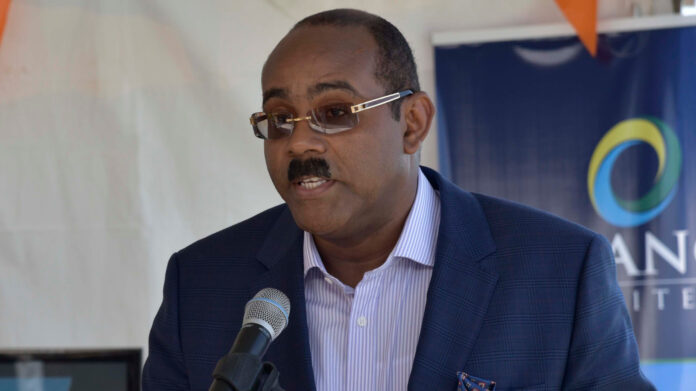By Orville Williams
While countries across the region continue to seek funding from lending agencies like the International Monetary Fund (IMF) to bolster their economies, Antigua and Barbuda is not likely to approach that particular financial body – at least not under the stewardship of Prime Minister, Gaston Browne.
“I have always been opposed to any IMF relationship. Yes, you do get cheap money, but it also comes with significant implications [and] I have an antipathy to firing anybody, under any circumstances.
“This is where, philosophically, I have a difference with the IMF because they look at figures and they will force you – if you’re in an IMF programme – to let people go.
“I feel so strongly about this that if we had to go into an IMF programme and I’m forced to let go people, I’d rather go home. I prefer to go home than [for] a single public servant to lose his or her job.”
That was Browne’s response while speaking on state media this week, to a query on whether his administration would consider approaching the IMF for funding, after the Baldwin Spencer-led United Progressive Party (UPP) last entered a multi-million US dollar arrangement with the body back in 2010.
That arrangement was necessitated by the global financial crisis, which caused a drop in revenues generated through tourism and remittances, and severely impacted the already-unstable local economy.
The PM’s declaration came just about a week after an IMF team completed the 2022 Article IV consultation in the country and called on the government to “contain increases in public sector real wages and rely on worker attrition and redeployment to ensure the wage bill is brought below 9 percent of GDP by 2025.”
That advice, however, is not likely to be acted on in the near future, as there are plans to increase public sector wages within the next couple of months and the government maintains its aversion to mass layoffs.
While in this case the IMF’s recommendations are merely so, such statements are often more instructional and even mandatory under official lending arrangements, like the situation in Barbados, according to Browne.
“We’d have seen in Barbados that when they entered their IMF programme initially, they had to let go 1500 people. They just renewed their IMF programme and another 1500 people had to go home.
“We wish Barbados well, don’t get me wrong. This is not being said to criticize the decision of the government of Barbados, we respect their position. But, if anything was to go wrong and they miss their targets, then they’ll have to send home more people.
“So, it’s one thing to get the cheap money, but it could be consequential,” he said.
The PM also made it clear that there might be circumstances, similar to the Covid-19 pandemic, that make it impossible for Antigua and Barbuda to avoid borrowing from the IMF, but maintained that he personally could not preside over such an arrangement.
“I will not go as far as saying never, they always say ‘never say never,’ and I’ll be mature enough to understand that we could find ourselves in yet another pandemic…and then [we] have absolutely no option.
“But, as I said, it would be with extreme reluctance and maybe it may even cause me to walk because of my own personal philosophy that I’d rather leave than to preside over firing, or anyone losing their jobs involuntarily as a result of any IMF programme.”
According to the IMF, the Antigua and Barbuda’s real GDP is estimated to have expanded by 5.3 percent in 2021. It is also projected to grow at six percent in 2022 and 5 ½ percent in 2023.

